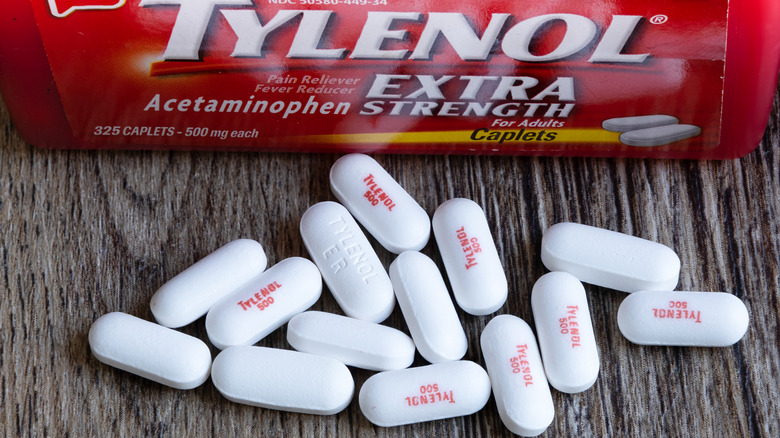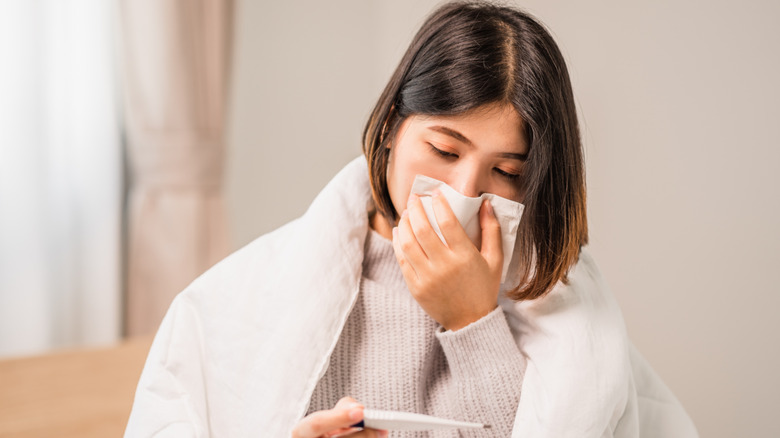How Much Does Tylenol Lower Your Temperature?
Fevers are uncomfortable, to say the least. Often, they cause chills; in some cases, they can even cause hallucinations. Fortunately, there are many ways to help alleviate a fever. In particular, Healthline recommends resting, drinking lots of fluids, and using cold compresses. With that said, we all know that the fastest and easiest way to break a fever is to take some medicine. The Mayo Clinic recommends medicine for people with fevers above 102 degrees Fahrenheit. Unlike aspirin, which is recommended only for adults, Tylenol is considered a safe medication for people of all ages past 6 months, so it has become a favorite among many.
Of course, when taking any medication, you should read the label carefully and make sure you take no more than the recommended dosage. While it may be tempting to take other medicine to combat other symptoms you have, the Mayo Clinic warns against taking more than one medication containing acetaminophen at the same time. Acetaminophen is found not only in Tylenol, but also in some cough and cold medicines.
However, you should expect to have to take Tylenol more than once (with at least 6 hours between each dose) to keep your fever down. If your fever is high, Oak Leaf Clinics warns that a single dose of Tylenol is unlikely to totally break your fever.
Tylenol can bring down fever by up to 3 degrees
According to Oak Leaf Clinics, a dose of Tylenol will bring down a child's temperature by 1-2 degrees Fahrenheit. Helgemo & Liou Pediatrics offers a more generous estimate of 2-3 degrees after 2 hours. Depending on the severity of the fever, this will either break a fever or bring it down to a more tolerable level. Either way, experts emphasize that, unless a fever is especially high (above 104 degrees Fahrenheit) and doesn't drop by at least 1 degree, the temperature on the thermometer is less important than whether a person is feeling comfortable.
The Mayo Clinic recommends calling your doctor if you have a fever of at least 103 degrees Fahrenheit and it doesn't reduce with medication, if your fever is consistently higher than 103 degrees Fahrenheit, or if your fever lasts 4 days or longer. You should also contact your doctor if you experience a severe headache, stiff neck, shortness of breath.


